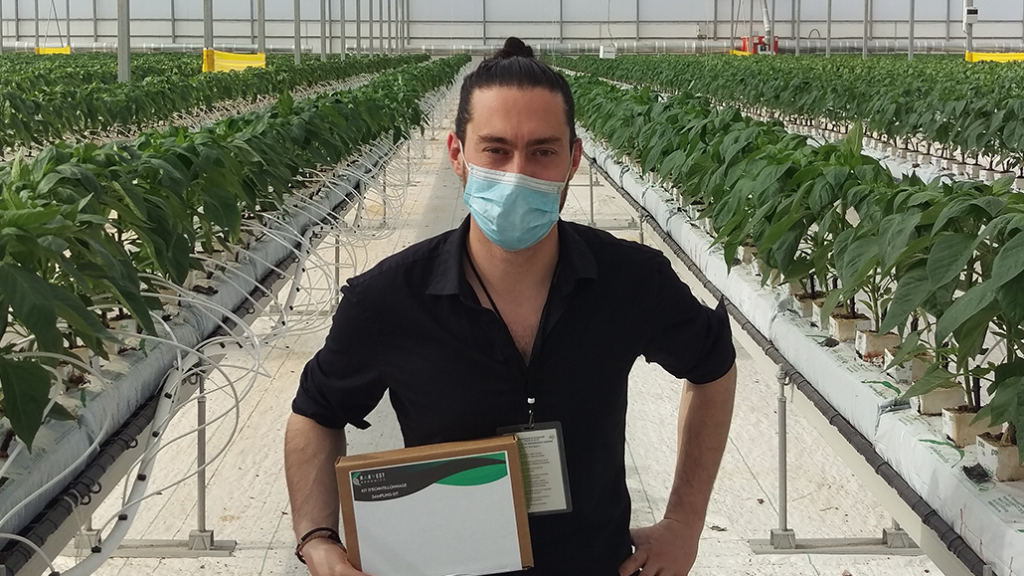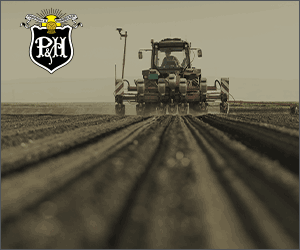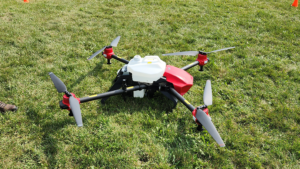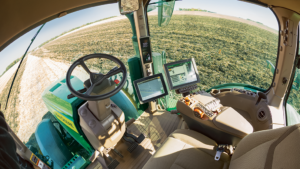Harvest Genomics

IT HAS BEEN two years since Harvest Genomics took top prize at a University of Guelph pitch competition, and the company continues to expand its DNA sequencing services to the agricultural community, with laboratories in Guelph and Quebec City and opportunities internationally.
In 2020, Harvest Genomics was chosen by a jury of high-profile judges as the $10,000 grand prize winner of the Gryphon’s LAAIR Pitch Competition. The Dragon’s Den-style program helps to accelerate the adoption of innovative research.
“We have always been interested in bringing fancy tools from sequencing technology to agriculture at an affordable price, and the pitch competition helped to put us on the map and reach more customers,” says Rémi Maglione, vice president and co-founder of Harvest Genomics.
Harvest Genomics uses high-end technology to diagnose common challenges on the farm. The company offers three main services to agricultural producers that use genetic testing and analysis, including rapid testing for herbicide resistance and invasive pest identification.
SERVICES FOR GRAIN FARMERS
For field crops, Maglione says weed testing is among the most popular services because it helps producers decide what group of herbicides they’ll need for the upcoming season.
Weed resistance normally occurs from repeated use of the same herbicide(s) and mode of application. Producers can collect a small sample of a weed from a field and submit it to Harvest Genomics for testing. The company extracts DNA from the sample and performs a PCR-like test to detect the presence — or absence — of a mutation.
“It’s a simple test that allows us to report back to a producer if the weed is resistant to a specific category of herbicide,” Maglione says.
Harvest Genomics also offers traditional and advanced biosurveillance tools to help producers and breeders better understand what they’re working with. Genetic mapping technologies identify markers for specific traits such as drought tolerance or pathogen resistance. The company has supported plant breeding by providing genetic mapping for specific varieties, and with this tool, it has the capacity to significantly cut the costs of breeding programs.
“Genetic mapping is valuable to seed companies because it allows us to assess genes and functions during the breeding process at a tenth of the cost of regular sequencing,” says Maglione. He says the company offers low-density and high-density genetic mapping, depending on need.
Producers can also access genetic tests for their crop material to determine its quality and consistency. He says some producers opt for peace of mind by testing the purity of their seed. Harvest Genomics can run a simple test for approximately $30.
GREENHOUSE APPLICATIONS
In addition to applications for field crops, Harvest Genomics has developed an important service in helping to detect dangerous plant viruses more accurately and quickly, including a debilitating disease in greenhouse tomatoes. Previous methods for detecting tomato brown rugose fruit virus rely on a multi-step process and PCR tests, which can be imperfect and yield false positive results.
“With our method, we have a portable detection device that can more reliably detect problems in plant tissue and swabbed surfaces, and we are the only company providing this test so far,” says Maglione.
He says the device is approximately the size of a mobile phone, and with trained expertise, it provides an efficient and effective way to detect a problematic virus — but it has the capacity to detect multiple diseases, in multiple plants, from anywhere in the world.
“This test is an entry point for the greenhouse sector and the agricultural sector at large, but the beauty of this platform is that it can do so much more. It really is the future,” Maglione says.
UNEXPECTED BENEFITS FROM THE PANDEMIC
For a business that was taking off during 2020, Maglione says the Covid-19 pandemic was an unlikely ally because of the public education that came with it.
“Before the pandemic, when we talked about DNA, PCR, and sequencing, it seemed too high-tech for most people to understand, but now concepts like ‘PCR’ are more common for all of us,” says Maglione.
WHAT’S NEXT
Now, with laboratories in Quebec and Guelph and growing interest from agricultural producers in Canada and internationally, Harvest Genomics is poised for more growth. The company has been presenting its technology at conferences around the world and is already expanding testing in Mexico.
In 2021, Harvest Genomics was unveiled as the private commercialization arm of Soyagen 2, a large-scale Genome Canada-funded project that aims to develop an ultra-low-cost genotyping platform and genomic prediction tool.
And in 2022, Harvest Genomics was successful in securing a grant from BioEnterprise, a Canadian food and agricultural technology accelerator organization, to develop and finalize the details around its portable platform, which is expected to launch more broadly in early 2023.
BOTTOM LINE FOR GRAIN GROWERS
Of the many ways Harvest Genomics hopes to support agriculture, Maglione says there are two affordable services grain growers can access today to make a difference on their farms—weed resistance testing and seed purity testing.
“Our company was founded by three scientists, Christopher Grainger, Davoud Torkamaneh, and Rémi Maglione, who saw that there weren’t many services available for producers at affordable prices,” says Maglione. “It’s a lesson that these tools can be used for a variety of real-life applications, not just for research programs.”
To learn more, visit www.harvestgenomics.ca. •

























